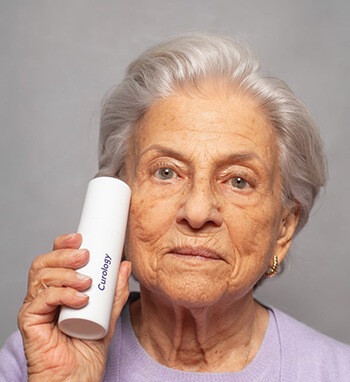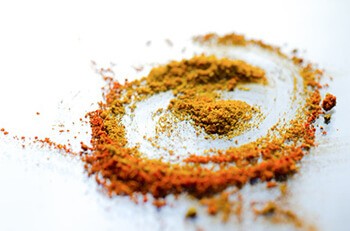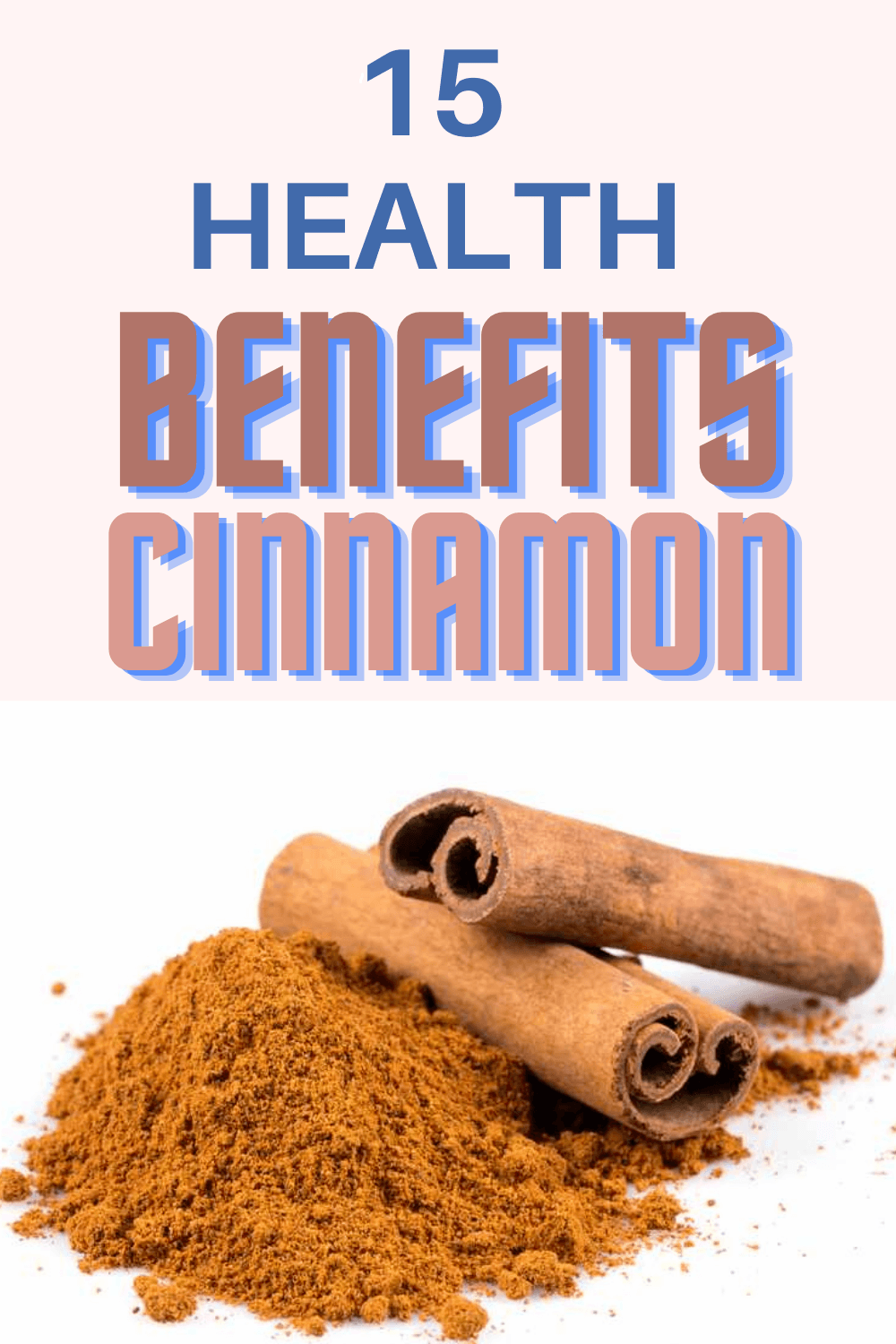Cinnamon is one of those spices that ticks all the boxes. Like turmeric and ginger, it’s something that you can easily add to a meal or even a hot drink to add flavour while bringing virtually no extra calories. Even being essentially calorie-free, cinnamon provides a wealth of nutrients and can help to improve your health in a whole host of different ways.
So, what exactly is cinnamon? This popular Christmas spice is a substance that’s produced from the bark of certain trees, which belong to a category known as cinnamomum. What makes cinnamon so nutritious is its active ingredients: eugenol, ethyl cinnamate, methyl chavicol, beta-caryophyllene, and linalool among others.
Some popular ways to use cinnamon include mixing it with milk and honey or sprinkling it into coffee, stirring into oven bakes, adding to desserts, and more. All of these things will allow you to enjoy the many health benefits of cinnamon.
Stay tuned to learn exactly what those health benefits are, plus any side effects you should be aware of.
1. Helps Control Diabetes
Cinnamon contains catechins, which are able to trigger the release of a hormone called insulin. Insulin, as you probably know, is the hormone that people with diabetes don’t get enough of. This is why management of diabetes tends to involve injecting insulin whenever blood sugar drops below a certain level.
Cinnamon can make a big difference to people suffering from diabetes and is often recommended as a natural supplementary item to be taken alongside medication.
2. Lowers Blood Sugar

Lowering blood sugar isn’t just good for people with diabetes – it’s also beneficial for the rest of the population too. Many people stick to low-carb diets, or diets that contain no carbohydrates altogether, with the intention of keeping their blood sugar as low as possible.
3. Protects Against Heart Damage and Ageing

Cinnamon contains a compound called cinnulin – an important antioxidant that can protect the cells and the heart against damage from free radicals. This can help to slow down the visible signs of aging by preventing cell damage that can add up to visible wrinkles, age spots, and sagging skin.
4. Anti-Cancer
Experts think that cinnamon might be useful for helping to combat the onset of cancer. The cinnulin content of cinnamon has shown promise in preventing mutated DNA from replicating and ultimately leading to cancerous tumours.
It does this by preventing the damage to cells caused by free radicals, and ultimately preventing damaged cells from spreading through the body.
5. Weight Loss Properties

Not only is cinnamon a useful supplement for people trying to maintain low blood sugar to lose weight, but it also helps the body to burn fat stores and thereby reduce weight. Cinnamon contains roughly 19 calories per teaspoon, so it won’t contribute to weight gain, either.
This is great to hear, considering cinnamon is a relatively sweet spice and certainly doesn’t taste like it contains virtually no calories. You can freely add cinnamon to your sweet and savoury dishes without worrying about the implications of doing so.
6. Anti-Fungal Potential
Cinnamon is an anti-fungal agent and can help to reduce a fungus called candida albicans. This fungus is responsible for candidiasis or thrush, which can occur in the mouth or the vagina, and is a distinctly unpleasant experience. It creates symptoms like a burning sensation, redness, and more.
In a recent study, it was found that using cinnamon oil and olive oil can effectively kill off many species of candida, even those resistant to medications. It’s interesting to consider how cinnamon may be used for preventing and fighting candida in the future.
7. Bacteria-Killing

Cinnamon isn’t only anti-fungal; it’s also anti-bacterial. This means that like garlic, it can be used as a powerful natural antibiotic for fighting regular bugs that cause sickness, cold, and flu.
It has even been shown to be effective in killing the likes of e.coli, salmonella, and pseudomonas. The cinnamaldehyde in cinnamon, in some cases, can kill drug-resistant bacteria. So where medications fail, cinnamon may be the solution.
Simply sprinkling cinnamon onto your dishes on a daily basis is enough to help you to avoid infections and stay healthy. If you do get an infection, then, of course, visiting your doctor is wise. Antibiotics are still considerably more effective than cinnamon.
8. Improves Oral Health

Another benefit of cinnamon, being an anti-bacterial, is that it will improve your oral health. We all know that bacteria live in our teeth and mouths, and are largely responsible for plaque and tooth decay. By consuming natural antibacterial agents like cinnamon, you can kill off these invaders and ensure your teeth and gums stay healthy into old age.
The other perk of having healthy gums is that it can prevent infections and illnesses from entering the body through the mouth. Even diseases like cancer can be prevented by maintaining good oral health.

9. Gets Rid of Bad Breath

Bad breath is caused by the same bacteria in the mouth that lead to poor oral health, which can produce a very unpleasant smell. Consuming cinnamon can help to kill off that bacteria and help your breath to smell less repulsive – especially first thing in the morning.
Garlic also wards off bacteria, but, of course, the problem with using garlic is that in many cases, it can make your breath smell even worse because of its pungent odour. Cinnamon is definitely the safer option. Try adding a sprinkle of the spice to your morning glass of milk or mug of coffee, and you should notice a positive difference.
10. May Treat IBS Symptoms
IBS, which stands for irritable bowel syndrome, is a condition that causes sensitive bowels and general gastrointestinal distress. If you struggle with IBS, you might benefit from cinnamon.
11. Anti-inflammatory Properties

Cinnamon contains an active ingredient, called zeylanicum, that nutritionists think can help to reduce inflammation. Zeylanicum has been shown in studies to be effective at reducing swelling in arthritic patients and others – but that’s not to say cinnamon should only be used by people with a known chronic inflammatory condition.
Many of us live with low levels of inflammation without realising it, so even if you think you’re healthy, cinnamon might make you even more so.
12. Lowers Cholesterol
According to research, cinnamon is likely also useful for lowering levels of cholesterol. In one study, cinnamon was taken alongside some other herbal substances, including cardamom, and it was found to have among the best anti-cholesterol effects of all.
Cinnamon is effective at increasing the levels of LDL cholesterol, known as bad cholesterol, and increasing the good kind of high-density lipoprotein, or HDL. Of course, cinnamon alone won’t lower your cholesterol.
You should be sure to also limit your consumption of saturated and trans fats, and get plenty of daily exercises if you want to stay heart healthy.
13. Reduces Muscle Soreness

If you often feel pain and soreness after workouts, then you might want to consider stocking up on cinnamon. Instead of adding cinnamon to your foods, in this case, you should sprinkle a few teaspoons into your bathtub and take a dip in the water. The anti-inflammatory properties of cinnamon can affect the muscles locally.
You should also consider adding cinnamon to your diet for faster recovery, as it can help to improve blood flow, which is important for enhancing muscle recovery and repairing damage caused by vigorous training.
14. Treats a Cold and Sore Throat

Dealing with a cold or flu is no fun. It can bring symptoms like stuffiness, fatigue, headache, and coughs and phlegm. The good news is that cinnamon has been proven to help people recover from the common cold a little quicker. This is because it acts as a natural antibacterial and antifungal, fighting against the microorganisms that have made you sick.
At the same time, cinnamon can also heal some of the common symptoms of cold, like a sore throat, thanks to its anti-inflammatory properties. Cinnamon has a scent and flavour that is also nice and comforting to indulge in when you’re not feeling your best.
Add a teaspoon of cinnamon to a cup of warm water with some honey and your sore throat should feel far less scratchy and dry.
15. Improves Brain Function and Alertness

Cinnamon contains something called epicatechin, which is the same nutrient that makes dark chocolate so beneficial to health. Epicatechin can help to increase blood flow around the body, meaning more oxygen and nutrients are delivered to the brain, which in turn can make you feel more awake and more alert.
Studies show that increasing blood and oxygen to the brain can actually improve your performance on concentration and memory tasks. If you need help waking up in the mornings, adding cinnamon to your oatmeal might be the solution for you.
Side effects
Cinnamon is almost always safe to enjoy in your daily diet, but there are a few side effects that can come from eating too much cinnamon. Here’s what you need to know:
1. Liver damage
Too much coumarin, found in cinnamon, may cause liver damage, especially in individuals with pre-existing liver disease.
2. Low blood sugar
One of the benefits of cinnamon is that it can help to regulate blood sugar. One of the side effects of too much cinnamon, however, is that it can drop your blood sugar too low, which can cause fizziness, fatigue, shakiness, and anxiety.
3. Allergies

Some people may be born with or may develop, an allergy to cinnamon. Some symptoms of a cinnamon allergy include skin irritation and an upset stomach every time you ingest it. Look out for allergy symptoms and stop consuming cinnamon if you notice a pattern.
4. Interactions with other medications
Some medications can be affected by taking too much cinnamon. Some conditions may also be harder to manage or even get worse with too much cinnamon. Be sure to talk to your doctor if you are diabetic and considering taking cinnamon supplements.
Conclusion
Cinnamon is delicious, flavourful, and can provide health benefits. But not every jar of cinnamon is the same.
If you want to use cinnamon for its health benefits, be cautious of using supplements. It’s always best to use natural ground cinnamon or cinnamon sticks if you want to get the most out of adding it to your diet.

